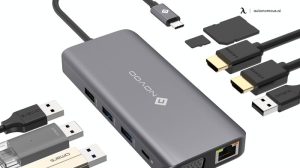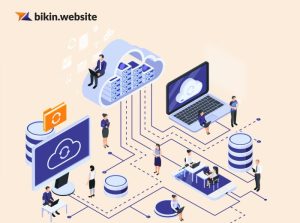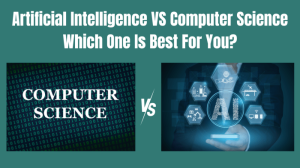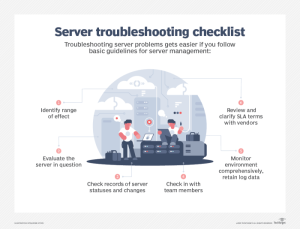
Get ready to dive into the world of mobile computing with the best apps to supercharge your digital experience. From productivity to security, we’ve got you covered!
Mobile Computing
Mobile computing refers to the use of portable computing devices, such as smartphones, tablets, and laptops, to access and manage information on the go. In today’s digital world, mobile computing has become an essential part of our daily lives, allowing us to stay connected, productive, and entertained wherever we are.
Popular Mobile Computing Devices
- Smartphones: These devices not only allow us to make calls and send messages but also provide access to a wide range of apps for communication, entertainment, productivity, and more.
- Tablets: With larger screens than smartphones, tablets are great for multimedia consumption, gaming, and productivity tasks like reading e-books or taking notes.
- Laptops: While not as portable as smartphones and tablets, laptops offer more computing power and are essential for tasks like programming, graphic design, and video editing on the go.
Evolution of Mobile Computing Technology
- Early Mobile Phones: The first mobile phones were primarily used for voice calls and text messages, with limited computing capabilities.
- Smartphones: The introduction of smartphones revolutionized mobile computing, combining communication, computing, and entertainment features in one device.
- Mobile Apps: The rise of mobile apps has further enhanced the capabilities of mobile devices, allowing users to access a wide range of services and tools on the go.
- 5G Technology: The advent of 5G technology is set to bring faster speeds and lower latency to mobile computing, enabling new possibilities like augmented reality and autonomous vehicles.
Computers Security
When it comes to mobile computing, security is a crucial aspect that cannot be overlooked. Mobile devices are susceptible to various security threats, making it essential to implement effective measures to protect sensitive information.
Key Security Threats
- Malware: Malicious software designed to infiltrate and damage devices or steal information.
- Phishing: Deceptive attempts to obtain sensitive information such as passwords or credit card details.
- Data Breaches: Unauthorized access to confidential data stored on mobile devices.
- Lost or Stolen Devices: Risk of unauthorized access to data if a device is misplaced or stolen.
Common Security Measures
- Use Strong Passwords: Set unique, complex passwords for device access and sensitive apps.
- Enable Device Encryption: Encrypt data stored on the device to prevent unauthorized access.
- Install Security Updates: Keep the device’s operating system and apps up to date to patch vulnerabilities.
- Use VPNs: Utilize Virtual Private Networks for secure browsing and data transmission.
Types of Security Software
- Antivirus Software: Protects against malware and viruses to ensure device security.
- Mobile Device Management (MDM) Software: Manages device security policies, app installations, and data encryption.
- Firewall Apps: Monitor and control incoming and outgoing network traffic to prevent unauthorized access.
- Anti-Theft Apps: Track lost or stolen devices, lock them remotely, or wipe data to prevent misuse.
Computers Software

In the realm of mobile computing, software applications play a crucial role in enhancing user experience and productivity. From operating systems to productivity apps, each software component serves a specific function in optimizing mobile computing devices.
Types of Software Applications
- Operating Systems: The backbone of mobile computing devices, operating systems like iOS and Android provide the necessary platform for running applications and managing hardware resources.
- Productivity Apps: Essential for getting work done on the go, productivity apps such as Microsoft Office, Google Drive, and Evernote enable users to create, edit, and share documents, spreadsheets, and presentations seamlessly.
- Security Software: With the increasing threat of cyber attacks, security software like antivirus programs and VPNs are crucial for safeguarding sensitive data and ensuring a secure mobile computing experience.
- Communication Apps: Facilitating seamless communication, messaging apps like WhatsApp, Skype, and Slack allow users to stay connected with colleagues, friends, and family regardless of their location.
Role of Operating Systems
Operating systems act as the foundation of mobile computing devices, providing a platform for running applications, managing hardware resources, and ensuring seamless user interaction. They are responsible for handling tasks such as memory management, process scheduling, and device drivers, ultimately enabling users to navigate their devices efficiently and effectively.
Examples of Productivity Apps
- Microsoft Office: A comprehensive suite of productivity tools including Word, Excel, and PowerPoint, Microsoft Office allows users to create, edit, and collaborate on documents, spreadsheets, and presentations on the go.
- Google Drive: With cloud storage and file sharing capabilities, Google Drive enables users to store documents, photos, and videos securely and access them from any device, making collaboration and productivity effortless.
- Evernote: A versatile note-taking app, Evernote allows users to capture ideas, make to-do lists, and organize thoughts in a digital format, ensuring that important information is always at their fingertips.
Computers Systems

Mobile computing systems consist of various components that work together to enable users to access data and applications on the go. These components include hardware, software, network connections, and user interfaces. The integration of these components is crucial for the seamless operation of mobile devices.
Components of a Mobile Computing System
- Hardware: This includes the physical components of a mobile device such as the processor, memory, storage, and display.
- Software: Mobile operating systems and applications enable users to perform tasks on their devices.
- Network Connections: Mobile devices rely on wireless connections such as Wi-Fi, cellular networks, and Bluetooth to access data and services.
- User Interfaces: Touchscreens, keyboards, and voice recognition are common interfaces that allow users to interact with their devices.
Integration of Hardware and Software
In mobile computing devices, hardware and software work in tandem to deliver a seamless user experience. The hardware components provide the necessary processing power and physical capabilities, while the software controls how these components function. For example, the operating system manages the device’s resources and runs applications that users interact with.
Importance of System Compatibility
System compatibility is essential in the mobile computing environment to ensure that hardware and software can work together effectively. Compatibility issues can lead to performance issues, crashes, or security vulnerabilities. For example, an incompatible app may not function properly on a specific device or operating system, resulting in a frustrating user experience.
Computers Technology
Mobile computing technology has been rapidly evolving, bringing about exciting advancements that are shaping the way we interact with our devices. From faster connectivity to smarter functionalities, the future of mobile computing looks promising. Let’s explore some of the latest trends and innovations in this field.
Advancements in Mobile Computing Technology
- 5G Technology: The introduction of 5G networks has revolutionized mobile computing by providing ultra-fast internet speeds and low latency. This enables seamless streaming, faster downloads, and improved overall user experience.
- NFC (Near Field Communication): NFC technology allows for contactless data transfer between devices in close proximity. It is commonly used for mobile payments, ticketing, and sharing information between smartphones and other devices.
- Bluetooth Technology: Bluetooth has been a staple in mobile computing for wireless connectivity between devices. With advancements in Bluetooth technology, we now have improved audio quality, faster data transfer rates, and better energy efficiency.
Impact of Emerging Technologies
- Artificial Intelligence (AI): AI is increasingly being integrated into mobile devices to enhance user experiences through personalized recommendations, voice assistants, and predictive analytics. This technology is shaping the future of mobile computing by making devices smarter and more intuitive.
- Internet of Things (IoT): The IoT ecosystem is expanding rapidly, connecting various devices and sensors to create a network of smart devices. In mobile computing, IoT plays a crucial role in enabling seamless communication between devices, leading to increased automation and efficiency.
Computers Gadgets
When it comes to mobile computing, having the right gadgets can greatly enhance the user experience. From accessories that boost productivity to wearable devices that offer convenience, there is a wide range of gadgets available to complement mobile computing devices.
Examples of Gadgets
- Portable chargers: These compact devices allow users to charge their smartphones and tablets on the go, ensuring they never run out of battery power.
- Wireless headphones: Ideal for listening to music, making calls, or watching videos without the hassle of tangled cords.
- Bluetooth keyboards: Transform your tablet or smartphone into a makeshift laptop for typing longer documents or emails more comfortably.
- Smartwatches: These wearable gadgets not only tell time but also provide notifications, health tracking features, and even the ability to make calls directly from your wrist.
Impact of Wearable Gadgets
Wearable gadgets have revolutionized the mobile computing experience by offering seamless integration between devices and users. With features like health monitoring, notifications, and hands-free communication, wearable gadgets have become an essential part of staying connected and productive while on the go.
Closing Notes
As we wrap up our journey through the realm of mobile computing apps, remember to explore the endless possibilities these tools offer for a seamless and efficient digital lifestyle.
Commonly Asked Questions
What are the key security threats faced by mobile computing devices?
Common security threats include malware, phishing attacks, and insecure Wi-Fi networks.
What types of software applications are essential for mobile computing?
Essential apps include productivity tools, communication apps, and security software.
How do emerging technologies like AI and IoT shape the future of mobile computing?
AI and IoT are revolutionizing mobile computing by enabling smarter devices and seamless connectivity.





